Open Source Microfactory STEAM Camp
March 14 – March 17, 2020
Happening in 4 physical locations as a collaborative effort at the same time, including an option for remote participation, and a weekend-only option:
– Palmerston North (New Zealand)
– Richmond, Virginia (USA)
– Boston, Massachussetts (USA)
– Seattle area, Washington (USA)
Please spread the word by posting our flyer.
Build Yourself. Build Your World.
Did you ever want to design or build something, but did not know where to start? We created a program – so you will never have this problem again. In our 4-day Open Source Microfactory STEAM Camp, you’ll learn how to build a 3D printer and other production machines, you will learn the basic principles of design, and you’ll be able to turn your ideas into prototypes, so you can turn your prototypes into a business. We will teach you the basic language of design – so you can apply these skills to shape the world that you would like to build. We will teach you about our Construction Set approach – with common libraries of parts – to make powerful design achievable with basic skills.
We focus on collaborative design – and this is our first ever event that is happening in 4 locations at the same time in North America and Oceania. The goal is to collaborate with the 4 places at the same time as we build a development community across the globe. This is part of our effort to accelerate innovation and create a viable path to the open source economy.
This 4 day immersion is the short version of our 9 day Open Source Microfactory STEAM Camp. The STEAM Camp, in turn, leads to a collaboratively literate public – where graduates are prepared to take part in Open Source Ecology’s Incentive Challenges – collaborative design ‘competitions’ which will be held annually staring September 2020.
Check out what the first 2 days of our last event looked like at the Dallas, Texas location:
Collaborative Design Training
Open Source Ecology is about collaborative design for a transparent and inclusive economy of abundance. The Open Source Microfactory STEAM Camp will explore this mission with hands-on, team projects. You will get a chance to build powerful tools that could be used in the real world – in time frames that you did not think were possible – by leveraging collaborative, open source design – across 2 continents and 4 locations.
The Open Source Microfactory STEAM Camp is a hands-on, immersion learning experience for designing and building useful, tangible products. Our goal is to shift the economy towards open source product design – and open source microfactories as the new engines of production.
Currently we are developing the Open Source Microfactory STEAM Camp as a regular, ongoing immersion education program to be deployed concurrently in multiple cities around the world. This is our first 4-location event. Based on the success of our first STEAM Camp, and the recent January 2020 STEAM Camp, we felt that we can make a dent in the universe by offering collaborative design training for public development of common products – such that we truly democratize production and bring innovation back to every community. Thus has emerged the concept of the Open Source Everything Store – an open source and collaborative effort that builds upon the work of many people to produce real, useful products – that can be manufactured in local microfactories using 100% open source production machines. This is the open source Fab Lab or Open Source Microfactory – with the promise of doing for production what Wikipedia has done for knowledge. This is the concept of Fab City turned real with open source.
People have alluded to this promise for over a decade since the publication of Fab by seminal thinkers in the field. In the digital age, the obstacle is no longer technical – but cultural. What is missing is collaborative literacy – not hardware technology. We started the Open Source Microfactory STEAM Camp to fill the collaborative literacy gap: to produce a world of collaborative design for a transparent and inclusive economy of abundance.
The STEAM Camps intend to build a global team of capable open-sourcerers – capable of wielding fully open source hardware and software tools for unleashed innovation. To develop products on a predictable schedule, we are also beginning to use the Incentive Challenge format. On Sep 2, 2020 – we will launch a $250k challenge to produce the world’s first, 3D printed, professional grade cordless drill – from waste plastic – using 100% open source microfactory technology. Our goal is to show the first, noticeable, replicable example of market disruption with open source hardware – on the way towards open collaboration becoming the norm in enterprise. Simply put – this is about creating a world beyond scarcity – where as we learned in kindergarten – we begin to share.

As part of the STEAM Camp, each participant will receive or make a Developer Kit consisting of the following components. We will use these tools to make useful products or experiments, and these constitute a set of important building blocks for teaching, which can be extended into economic productivity. Participants each take their kit home with them.
- 3D Printer – D3D Universal 3D printer kit – with automated bed leveling, quick release spring steel print bed, Volcano nozzle for fast printing, and fast 1.2 mm stock printing nozzle. We include a spool of filament and a set of small tools required to put the printer together. Our printer is modular, highly expandable, and features the lowest part count of any 3D printer in the world. It is made for expandability and bootstrapping to industrial grade machines – yet it features a simple design made from common off-the-shelf parts – thus allowing a lifetime of service and the ability to grow the machine as your production needs grow. The 3D Printer includes an SD card of printing files to make the D3D Pro 3D Printer and the CNC Torch Table.
- Plotter Attachment – a pen plotter attachment is included in the kit, which is mounted on D3D Universal as a quick-attach toolhead for CNC plotting of pictures or for drawing circuits to be etched on copper-clad boards. The plotter attachments can use a pen, marker, or any writing utensil. The Plotter Attachment kit
- Milling Attachment Kit – the milling attachment kit includes a DC motor, coupler, and 1 mm milling bit, and quick-attach mount for mounting the motor to the D3D Universal CNC axis.
- Electronics Kit – This includes the parts necessary to build an Arduino Uno microcontrollers from scratch: components, copper clad board, soldering iron, and etchant. Combined with the CNC Plotter, CNC Drill, and a lesson in KiCad, this constitutes a rich lesson plan on circuit-making for practical purposes.
- Raspberry Pi Tablet Kit – comes with a Raspberry Pi 4B, 7″ high resolution touch LCD, and a 4K Camera Module v2 for video, and LED module. Kit includes connection wiring and a battery pack. This is ready to be turned into a functional multipurpose tablet – with 3D printed enclosure.

Overview
The 4-day STEAM Camp is a hands-on immersion that involves class time and build time. There are about 3 hours of class time per day, where we teach about collaborative design techniques, do design reviews, or other learning activities. Most of the time is spent with hands-on learning – whether using design and collaboration software tools – or doing hands-on builds. All learning takes place across multiple disciplines: science, technology, art, design, build, documentation, and most importantly – collaboration. The 4 days constitute a collaborative design boot camp. We also teach each other. In addition to the instructors doing their part in presenting material – we rely on participants teaching each other so that we create an immersion learning environment where everyone contributes.The event is built around increasing participants’ capacity to work collaboratively, by documenting and building upon each others’ work.
Moreover, this collaboration takes place globally. The STEAM Camp takes place in 4 locations – New Zealand; Richmond, Boston, Seattle (USA). So when you join, you are joining a larger collaborative effort. This effort does not stop at these 4 physical locations, as we also have a Remote Participation option, as we broadcast our content between the 4 locations and between Remote Participants, who may be located anywhere that a video connection can be found. The remote participants have access to the Microfactory Prototyping and Developer Kit of tools and parts that everyone in the physical locations will be working with. We will broadcast the event live on the internet the whole time. Remote Participants have the chance do do all the builds alongside with us, and to participate hands-on in all the builds and experiments. Remote Participants can thus collaborate fully in uploading and downloading design, while engaging in rapid prototyping – to move the collaborative design effort forward in a significant way. Our goal is to leverage open design, fully open source toolchains, and open processes to involve as many people in our modular design. By breaking down projects into small parts or modules, we are able to involve a large team in effective, parallel development across the globe.
To collaborate – the practical side involves frequent and ongoing uploads and downloads of designs to the wiki, and each contributor maintains a Work Log to orient everyone else on their activity. By observing Recent Changes on the wiki, visual version histories, and by coordinating via video communication – we collaborate in a seamless and effective way. We have been pioneering such collaborative design for years in the world of open hardware, and will scale this to a much larger level in our forthcoming collaborative Incentive Challenge of September, 2020. The STEAM Camps are intended to provide skills for large-scale open design collaboration.
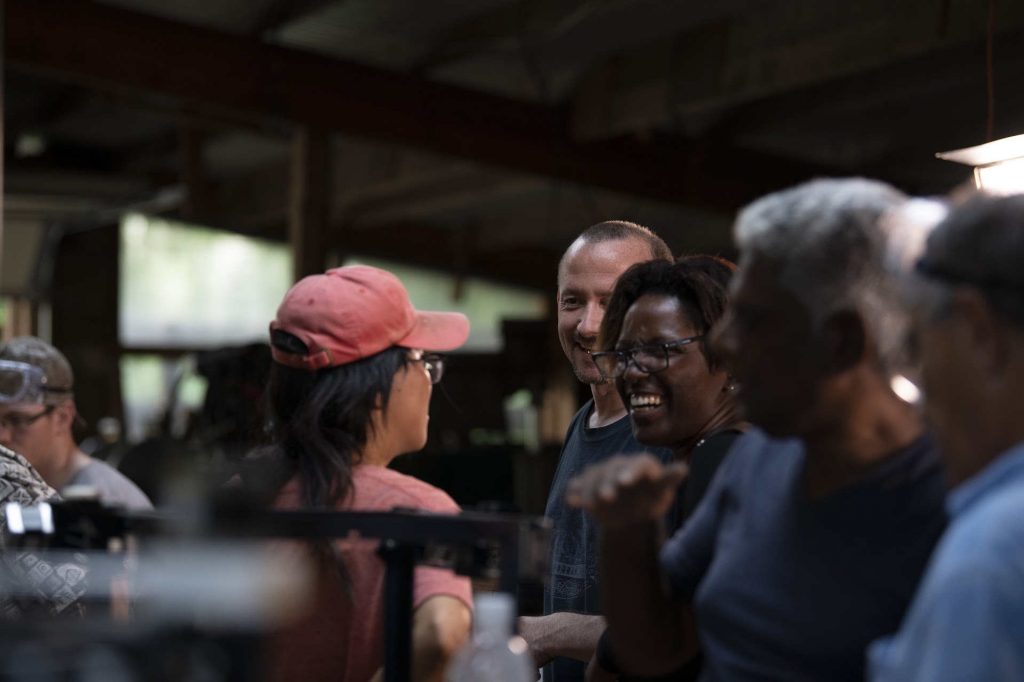
As an important addition to the collaborative mindset – we teach how working together can produce more powerful results. We are building continuity and community into the learning program as well. To prepare, students are encouraged to download our software suite, OSE Linux, to become familiar with the tools before participating in the live event. The learning experience continues after the Camp, where we invite all onsite + remote participants – as well as participants from former STEAM Camps – to additional follow-up sessions. These sessions are held on Saturdays – for 2-4 hour Design Sprints, where we follow up on design and documentation projects, or possibly even pivot to other collaborative design. Our intended outcome of the STEAM Camps is to provide the collaborative literacy that allows all of us to work together. We are especially interested in technology that matters. We do all this while building a community of early adopters of the forthcoming open source economy, where a new paradigm of collaborative design replaces competitive waste.
All work aims at the release of marketable products that can meet real needs. We offer the special value proposition of lifetime design – where users can maintain or upgrade each product based on its open source, easy-to-build design, which uses common-off-the-shelf (COTS) parts in addition to parts that may be fabricated digitally such as with the 3D printer. Our goal is to foster an entrepreneurial spirit, where people contribute to their local economies, while collaborating with the greater world.
Curriculum
Days 1-4
What are the critical tools that we need for effective collaborative design? These tools involve, first and foremost – Collaborative Literacy – a mindset and a practical process – that enables people to work together for the common good. Beyond these soft skills is a set of hard skills and interdisciplinary technical knowledge that enables one to come up with creative and effective design.
On the first day – we provide an introduction to Open Source Ecology and collaborative design – for a transparent and inclusive economy of abundance. We discuss the potential of open source, collaborative design to transform the world’s economy from proprietary to collaborative – with an accompanying cascade of positive change throughout the world. We dive right in from the theory to creating industrial productivity on a small scale: building our own 3D printers from scratch. Each person builds a rapid prototyping 3D printer from scratch, and runs a first print on the same day. The 3D Printer is called D3D Universal – a 3-axis machine with quick-connect tool heads. This is the machine that we will use to build 2 more tool heads throughout the rest of the program.
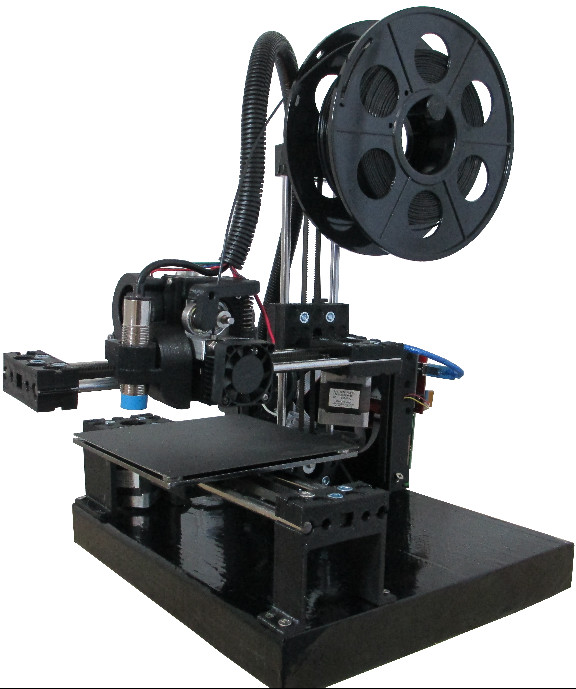
On the second day – we dive into the design aspect – with a crash course on FreeCAD – an open source computer-aided design (CAD) tool. In one hour, we will teach you how to go from an idea in your head – to a basic design workflow – and end up with an object that you can print readily on your own 3D printer that you just built. Throughout the program, you’ll be able to practice your CAD design skills with other simple designs in FreeCAD as you build your skills. All the things you design will be practical tools tools or parts that you then print and use – and upload online so anyone can benefit from them or improve them.
The practical designs of the second day is pen plotter. You can either print out existing designs that we have provided – or you can modify them – or you can create your own. The pen holder turns your D3D Universal into a CNC pen plotter for drawing pictures or circuits. You will learn how to control these machines with the same Universal Controller as the 3D printer – by generating tool paths by hand, or using software such as Inkscape, KiCad, or FreeCAD to generate tool paths for your plotter or mill. Because D3D Universal has a height sensor, you will learn how to level the workpiece automatically for plotting.
The intent of these exercises is to learn how these machines work, to the point that you can design and build a modified, larger, or more robust version that can be used in production. While the tools built are entry level and focused on education, they have a clear path of extensibility and scalability that allows them to become workhorse machines. With the tools and skills gained, and a support community to help – we encourage people to start open source microfactories that contribute to a circular economy based on global, collaborative design. For example, you can print our professional grade printer – D3D Pro – using the D3D Universal – so that you can bootstrap readily to real production. Or, you can even print parts for a CNC Torch table for cutting metal parts. In fact, our build techniques can be applied readily to make heavy CNC machines for milling steel.
On the third day – we move on to electronics – and make more fabrication tools while we are at it! We start with 3D design to design or modify a CNC drill attachment, which we will then print and add to our toolchest of open source CNC tools. Then we will use the CNC pen plotter that we built on Day 2 – to plot circuits on copper-clad board. We will then etch this circuit in a bath, and then CNC drill holes in it so we produce a circuit board. We then add components to this board and make a functional, minimalist Arduino Uno microcontroller. We will then use this controller to switch large loads using a solid state relay to demonstrate that this self-made microcontroller actually works and does what you program it to do. We will program the Arduino using simple programming code to switch on a wall light or fan or any other electrical device – demonstrating that we have the power to control kilowatts of electrical power automatically – using a microcontroller that we built ourselves – using a 3D printer and plotter that we made together from scratch. We will learn how to produce the circuit design in KiCad open source electronics software, and how to export files for circuit plotting and drilling from KiCad – so we can plot and drill anything we want on the D3D Universal machine.
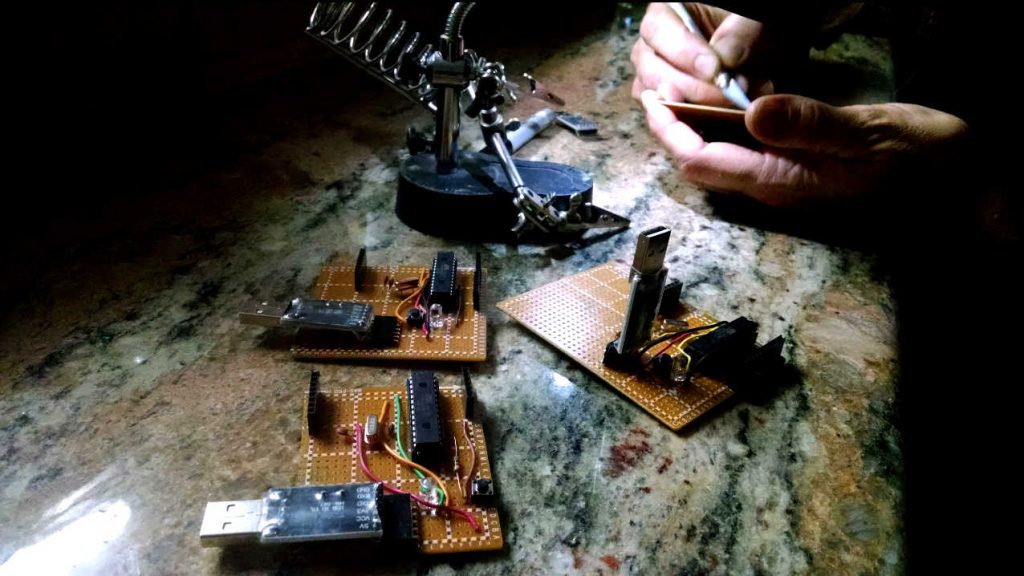
On the fourth day – we move on to the Pi Fablet – a computer tablet based on the Raspberry Pi 4B+ microcomputer. We will design and print the enclosure, add a camera lens and touch-screen display, wire it all up – and make a functional, practical touch-screen tablet intended for every-day use. We will even learn to program a simple camera app by the end of the 4th day! The intent is to have this become part of a continuing and collaborative effort to make a practical product that can be produced anywhere in the world. The advantage of open source design is that the Fablet will never die – because you can modify it for ever, replace parts, and create new functionality using its powerful 64-bit quad core processor running at 1.5GHz. This is an example of eco-friendly design, where lifetime design can keeps this product from ending up in a landfill. We will use a Raspberry Pi 4B quad core 1.5 ghz with 4GB RAM – a powerful base for a practical tablet. We are including a 7″ touch screen, a Camera v2 8 megapixel module capable of 4000 pixel horizontal resolution (4K) to work with, and a battery pack. These parts are all included in the STEAM Camp admission.
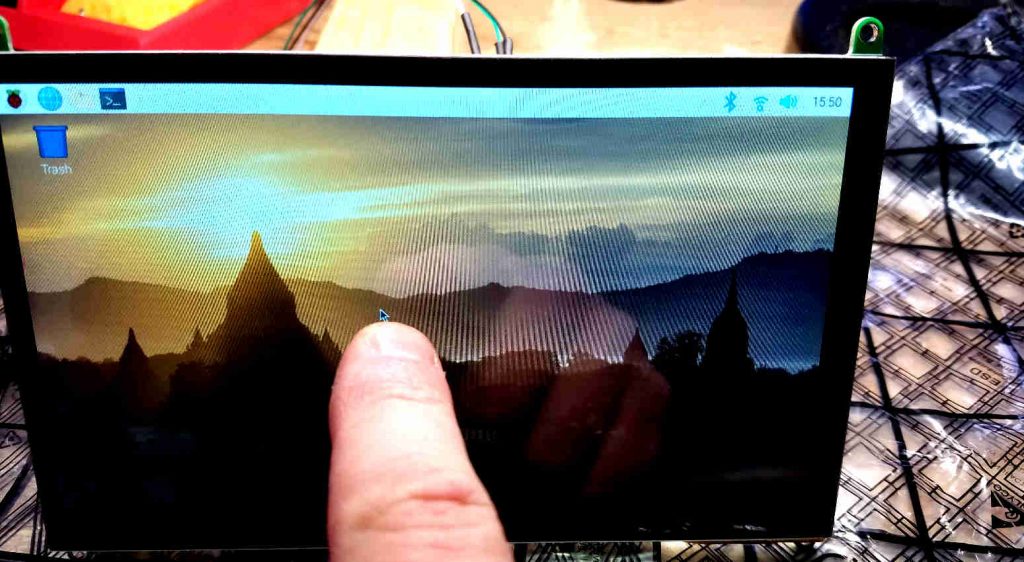
Learning Goals and Outcomes
As a result of the 4 day STEAM Camp, we expect that participants have an opportunity to gain:
- Basic proficiency in designing parts and assemblies in FreeCAD, the leading open source 3D computer-aided design (CAD) modeling application
- Practice in a collaborative design process in which projects are broken down into small parts, prototyped rapidly using a 3D printer, and documented.
- Introduction to a process of designing, 3D printing, prototyping, iterating, and documenting as a coordinated team towards designing practical products
- Ability to convert 3D designs into successful 3D prints by understanding printing parameters to generate working printing files
- Ability to build a 3D printer and 3D printer extruder from scratch.
- Basic practice in working collaboratively as a team to solve relevant problems while teaching and learning from one another
- Understanding of the Universal Axis and Universal Controller system and how to apply it to building different CNC machines
- Understanding how to start and update part libraries of 3D CAD design
- Ability to coordinate collaborative design work by using a work log, wikis, cloud editable documents, and FreeCAD for 3D design
- A basic overview of how to approach a design problem starting with a concept, formulating requirements, doing technical design, and evaluating the result
- Basic understanding of how a microcontroller circuit works, and ability to build a basic microcontroller from a processor chip and discrete components
- Basic understanding of how a CNC circuit mill works, and the ability to build a circuit mill spindle starting from a motor
- Understanding how to generate toolpath files for plotting drawings and circuits, and for milling and drilling materials
- Entry-level proficiency in designing and prototyping circuits in KiCad, and transferring those designs to copper-clad boards via CNC hole drilling and etching of copper clad boards
- Basic practice of soldering components to make circuits
- Basic understanding of how to design and build a computer tablet from a small microcomputer board, touch-sensitive LCD screen, and battery pack.
- An improved appreciation of the potential of collaborative design to transform the economy from proprietary to collaborative
- Introduction on how to upgrade and scale small Universal Axis-based CNC machines such as those built in this STEAM Camp to production-grade machines for the distributed economy
- Access to a community of individuals committed to open source product design and development
- Relationships and friendships with others who are interested in a livelihood based on open source microfactories fueled by open source design
- Ongoing collaboration with other STEAM Camp participants on projects dedicated to the common good
Daily Schedule
We focus on developing collaboration skills. The typical schedule involves 8 hours of programming. Note that in order for collaboration to occur more easily between the different locations, we are starting the day at 7 AM in New Zealand, and 1 PM EST in for the 2 East Coast locations in the USA, and 10 AM on the West Coast USA – which is the same time across the 3 different time zones. Note that while the program runs for 4 days from the 14th to the 17th – the first day for America means that New Zealand is already on Day 2. On Day 2, Marcin will present an OSE introduction to all the 3 other locations to welcome them to the team with an overview of the program and vision.
- 7 AM – 4 PM – the day in New Zealand. 1 hour lunch break.
- 1 PM – 10 PM – Richmond and Boston, USA locations
- 10 AM – 7 PM – Seattle area location.
We understand that it is difficult for many people to make a 4 day commitment to the open Source Microfactory event. So we are also offering a weekend-only option. Sign up for the weekend – and you get to build and take the 3D printer home with you on the first day. You are welcome to stay for the second day and learn how to design things for printing in FreeCAD – all in one weekend! On top of that, you can build the pen plotter attachment and learn how to do CNC plotting – see the first 2 day program above. That is a fun-packed weekend where you leave with set a of tangible skills – and a 3D printer and CNC plotter that allows you to turn your ideas into reality.

Our audience is people interested in collaborative design for a transparent and inclusive economy of abundance. We have no specific age limits, and we focus on mindset of learning. We welcome Women in STEAM, young people, retired people – and anyone who wants to hone their collaborative development skill set.
We are seeking individuals who want to build the world around them – based on open source principles – and this workshop is intended to provide inspiration and the tools to do so. We have a focus on understanding HOW to design – not just to build things – and applying our skills to make a more transparent and inclusive economy of abundance. We are looking especially for those people who want to get their hands dirty – as responsible technology can come only from involved citizens. To this end – we demystify the skills necessary to build robust and human-centric products – easily and at low cost.
If you are interested in starting an open source microfactory to bring wealth to your community – we provide you with the mindset and tool set that helps you to do this.
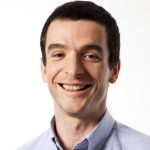
Marcin Jakubowski
Event facilitator in Palmerston North, New Zealand.
Marcin was trained as a fusion physicist. He left academia right after finishing his Ph.D. to start a farm – in Missouri – and founded Open Source Ecology. For the last 10 years, he has been working on the Global Village Construction Set – now 1/3 complete – a set of enabling tools and machines for building regenerative infrastructures. Marcin is passionate about creating the Open Source Economy – a new operating system for Earth. See Marcin’s bio and Global Village Construction Set Ted Talk:
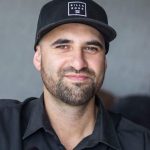
Ian Tairea
Instructor-in-Training in Palmerston North, New Zealand.
Ian is a technologist and educator currently on the leadership team of a small Māori high school in Aotearoa (New Zealand), Tai Wānanga TŪ TOA. With a background in web development and an interest in the Internet of Things, he teaches Computer Science and Digital Technology at the school, working on innovative tech projects with his students. Ian is passionate about equipping youth (specifically indigenous youth) with the tools to create their own career pathways, having the technical skills to solve real-world problems and ultimately building the future that they, their family, and communities want. Ian is an Instructor-in-Training at this event, ready to bring the Open Source Microfactory to New Zealand to promote collaborative design and enterprise development of real technology that matters.

Jessica Leete
Event facilitator for Boston, Massachusetts, USA.
Jessica Leete is a designer, a licensed landscape architect, sculptor, urbanist, community catalyst and ecology educator. She is the founder of Boston dot dash Studio. The studio is the space for convergent thinking, design process, and construction regarding land and the systems that engage it to create regenerative solutions that reverse environmental degradation, are resilient, adaptable, and (through an engaged design process) provide training for an empowered community. The studio is about realizing solutions, the act of making, and how the process of design can affect positive change. The first of many, she encourages you to join the movement, start your own (location) dot dash Studio. A member of the Global Open Source Hardware (GOSH) movement, her particular interest lies in developing and making ubiquitous, open source hardware and technology for environmental metrics. To that end, she is collaborating with Open Source Ecology to enable universal access to collaborative design using open source toolchains.

Chris Caswell
Event facilitator for Richmond, Virginia, USA
With a background in Computer Science, Chris became particularly interested in Open Source Hardware as he began to experiment with 3D Printing in 2011. He was inspired and driven by the vast potential of personal/distributed manufacturing as he witnessed the line between software and hardware begin to blur. In 2013 he quit his job in Boston and moved to Richmond, Virginia to work with the technology full time. This work eventually became a Full Service 3D Print Shop – 3D Central – specializing in desktop FDM printers. He primarily does custom fabrication and rapid prototyping, along with continuing to offer 3DP related services to the surrounding community. Over this time he has replicated over 10,000 things, and trained hundreds of folks on the basics of the technology.
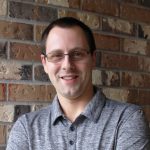
Jeremy Drost
Event facilitator for Bellingham (Seattle area), Washington, USA.
Jeremy is the first newly trained instructor from the Open Source Microfactory STEAM January Camp program. With a background in Operations and Quality Assurance in automated food production environments, Jeremy has been involved in mentoring and onboarding new people to processes and automation for much of his career. He is now focusing on introducing beginners to digital fabrication and automation at Open Source Microfactory STEAM events. He finds incredible fulfillment in creating, problem solving and optimizing. In his downtime, Jeremy can be found working with his bees, and dreaming/planning an automated farm.
This is our first ever event in 4 concurrent locations. The program is an all-day event for 4 straight days. You can register to attend in person at one of the 4 locations in New Zealand or America. Or, you can register for remote participation where we ship you the OSE Developer Kit so you can participate hands-on with the builds. We can ship kits for remote participation only to USA locations due to logistics issues – with a registration cutoff for US locations being 8 PM CST USA on Friday, March 6, 2020 for both remote and on-site participation. The registration cutoff for the New Zealand location is 8 PM CST on Monday, March 9, 2020.
The working language for participant collaboration is English, as this is an international event.
Note that due to the time difference, we will coordinate with New Zealand and the USA, but they will be one day off – New Zealand is 1 day ahead. Eventually the STEAM Camps will be such that work is ongoing 24/7 through a tag-team on all continents.
Palmerston North (New Zealand)
- LocationHeld at Tai Wānanga TŪ TOA, 75 Staces Road, Aokautere, Palmerston North 4471./li>
- Nearest International AirportWellington.
- Accommodations: accommodations can be secured for an additional NZ$35 or NZ$60 per night, see Registration Section.
- Food: Not provided. Participants can go to any of a wide range of restaurants nearby or bring their own lunch.
- Travel: Participants are responsible for their own transportation to the site
Richmond, Virginia (USA)
- Location: 3D Central – full service 3d print shop, 1726 Altamont Ave Suite B, Richmond, VA 23230. Education and production space.
- Nearest International Airport – Richmond International Airport
- Accommodations: no accommodations are available on site, participants are responsible for their own accommodations
- Food: Not provided. Participants can go to any of a wide range of restaurants nearby or bring their own lunch.
- Travel: Participants are responsible for their own transportation to the site
Boston, Massachusetts (USA)
- Location: NADLAB basement, 1920 Washington Street #2 Boston, MA 02118
- Nearest International Airport: Logan International Airport, Boston.
- Accommodations: no accommodations are available on site, participants are responsible for their own accommodations
- Food: Not provided. Participants can go to any of a wide range of restaurants nearby or bring their own lunch.
- Travel: Participants are responsible for their own transportation to the site
Bellingham, Washington (Seattle area) (USA)
- Location: Bellingham Makerspace.
- Nearest International Airport – Bellingham International Airport
- Accommodations: no accommodations are available on site, participants are responsible for their own accommodations
- Food: Not provided. Participants can go to any of a wide range of restaurants nearby or bring their own lunch.
- Travel: Participants are responsible for their own transportation to the site
What to pack
– Bring a cordless drill or soldering iron, if you have them.
– Bring safety glasses and gloves, if you have them.
Special Discount: 2-for-1 offer – register today and bring a friend or family member with you for free (you take only one Microfactory Kit or 3D Printer home with you only). Applicable to Regular Registration and Weekend Option.
Registration Options
- Regular Registration – US$1099: Full on-site participation at one of the 4 locations. Includes the OSE Dev Kit (see details at the Microfactory Prototyping and Developer Kit section above). Note: registration cutoff for the on-site participation for all 3 USA locations is Friday, March 6, 2020 at 8 PM CST USA time. The registration cutoff for the New Zealand location is 8 PM CST on Monday, March 9, 2020.
- Remote Participation – US$899: Includes live access to the event over the internet for all the classroom, design, and build sessions – for you and any friends at your location – so you can collaborate with us in real-time. ALSO INCLUDES the full OSE Dev Kit – so you can participate in all the builds along with the live event. Sign up remotely and invite all your friends to a build party to help you! See detail of the Dev Kit at the Microfactory Prototyping and Developer Kit section above. Shipping is included within the USA. Note: Remote participation available only for the USA locations, and cutoff for this remote participation is Monday, March 9, 2020 at 8 PM CST USA time.
- Weekend Option – US$799: Participate for the weekend. Stay for 1 or 2 days – and build your own 3D printer to home with you – in one day. Also learn to design parts for 3D printing in FreeCAD – and build your own CNC plotter – all in one weekend! You also receive live and recorded online access to the last 2 days of the program. See details about the Special Weekend Program above.
- SPECIAL OPTION – NEW ZEALAND ONLY – NZ$899 (New Zealand Dollars) : Participate for the full event – and still take the 3D printer home with you, but not the Raspberry Pi Tablet or the other experiments. This allows you to participate fully on a lower budget – while working with the other participants on the other parts of the program to get the full learning experience. To select this option, please submit via the Donate to OSE registration option. The registration cutoff for the New Zealand location is 8 PM CST on Monday, March 9, 2020.
- New Zealand Accommodations – NZ$60 or NZ$35 per night (New Zealand Dollars) : 60 per night (includes 3 meals) OR $35 per night (excluding meals). Wifi $10 for 30GB ea. To purchase this, add this to your total, and submit via the Donate to OSE registration option..
- Donate to OSE – Sponsor another participant or Donate to OSE: We are a nonprofit organization with 501(c)3 status, and you can make tax-deductible contributions to us. You can fund attendance of someone who is on the waiting list for financial assistance. We receive low-income assistance requests for all of our workshops. Sponsor by paying the quantity on the order form below. Please email us at info@opensourceecology.org that you are sponsoring someone else. We can send you a tax deduction receipt (US customers only). You can also donate via BitCoin:

Bitcoin Address: ”’166yC48RakrZdtsBj36vY9q29CpzknHbxY”’
Payment Options: PayPal, Check, eCheck Bitcoin, Money Order, or Wire Transfer
To register, we use Eventzilla (below) – which accepts PayPal or eCheck options. Using the eCheck option (bank routing + account number) avoids the 3% PayPal fee. To avoid fees, you can send a check to Open Source Ecology, 909 SW Willow Rd, Maysville, MO 64469. We can also accept Bitcoin and and wire transfers. Email us at info at opensourceecology.org for additional instructions.
All sales are final, as we are making significant material purchases and incurring logistics expenses in preparation for this camp. In case of the unlikely events such as weather or civil unrest, we plan to postpone the event until a more favorable date.
After registering below, please contact info-at-opensourceecology-dot-org to let us know which event you’d like to attend (New Zealand / Richmond, Virginia / Boston / Seattle area)
Have questions? Drop us an email: info-at-opensourceecology-dot-org
Please download and post this flyer at a coffee shop near you:

We – the countless collaborators upon whose shoulders the OSE vision stands – imagine a world of innovation accelerated by open, collaborative development – to solve wicked problems. We see a world of prosperity that doesn’t leave anyone behind. We envision a world of collaborative design for a transparent and inclusive economy of abundance – and our workshops contribute to this mission. See what others are saying:
Your project is amazing. Thrilling, actually… It’s people like you who really give me hope for the future.
— Chris Anderson, TED Curator
Interesting ideas. I don’t know of anything quite like it.
— Noam Chomsky
This project is truly inspiring, I’ve rarely seen such a purposeful way to react to the challenge our civilisation is facing. Thank you so much for contributing to the world in such a thoughtful way.
— Pascal Gingras, from a 3D printer build workshop
Had a really enriching experience. Thank you for doing what you do here.
— Dustin Hall, from a Tractor build workshop
Overall, I had a great experience. I think some frustration and difficulty is a prerequisite for true learning, and had that expectation going in. I learned a TON! I was able to get several friends excited about the project, and foresee us participating in future build workshops, and hopefully becoming hosts as some point.
— Jeremy Drost, from USA STEAM Camp
Great concept, great work. Thanks for doing this, it helped me a lot!
— Holger Kienle, from Belgium STEAM Camp
Would you like to become an instructor for the STEAM Camps? Find out more what it’s like, and apply by starting with a Video of Interest as discussed in the video description:
What preparations should I make prior to attending the live event? Make sure that you have a working laptop with mouse and internet connection. Make sure that your computer can run OSE Linux v1.0 – the software suite of FreeCAD, Lulzbot Cura, Arduino Environment, KiCad, Inkscape, etc – either by downloading the software or requesting a copy of the Live USB, which we can ship to you (it’s included). More information on this is found in our logistics email that is sent soon after your register.
What are the technical requirements for participating on site? You will need a working laptop with mouse and wireless internet connection. For software requirements – you will need to run OSE Linux. You can either download OSE Linux v1.0 and make a live USB – or wait until you receive your Dev Kit, about a week before the STEAM Camp. The Dev Kit includes a copy of OSE Linux v1.0. kit, so you should make sure prior to the event that you can run the OSE Linux. We strongly recommend that you test OSE Linux v1.0 before the event – as we simply will not have time to troubleshoot software issues related to OSE Linux during the event. If you are not able to run the necessary software, your experience will be limited.
What are the technical requirements for participating remotely? You need to have a decent internet connection, as we will be streaming video from the live event. A webcam is useful so we can see you. For software requirements – you can either download OSE Linux v1.0 and make a live USB – or wait until you receive your Dev Kit, about a week before the STEAM Camp. The Dev Kit includes a copy of OSE Linux v1.0. kit, so you should make sure prior to the event that you can run the OSE Linux. We strongly recommend that you test OSE Linux v1.0 before the event – as we simply will not have time to troubleshoot software issues related to OSE Linux during the event. If you are not able to run the necessary software, your experience will be limited.
I am participating remotely. I have a moderately equipped shop, but have minimal metal working tools. What items should I acquire/borrow prior to the workshop? I.e., angle grinder, wire wheel, torch, drill press etc.? Our kit is largely self-contained, so that access to tools is not a block in our builds and experiments. We have designed our kit specifically so that includes the necessary hand tools, and so we 3D print or build out any other tools that we need. This is a unique part of the immersive open source microfactory experience. If you have a vise, hammer, cordless drill with drill bits – that can help but is not absolutely necessary.
Given that some nuance is lost in not being physically on site, will a remote participant still get the fullest experience they’d need? Regarding the remote participation – with the kit that we ship your expected learnings would be building the printer, plotter, learning FreeCAD, building out the remaining experiments and tablet. If your internet connection is decent, then you can follow the experiments and materials pretty well. The iterative upload-download to part libraries should enable a larger team to follow on site or remotely. What you will probably miss is the face-to-face relationship building and potential friendships that you probably can’t establish without interacting with people more directly. There will be that social time and relationship time that can happen only spontaneously or in person. If you are looking to meet people and do potential collaborations as a result – then on-site naturally would be better. The other part is that if you cannot do something, or if something breaks nobody can step in and give you a hand or give you a replacement part, and given that the curriculum is pretty packed – you might miss finishing some things if you are not able to manage them yourself. The big part about the onsite participation is the synergy and back-and-forth between people – simply helping each other – and the synergy of some of the projects. Some of the projects are designed to show metaphorically – and practically – that we can do more together – as emphasized by our modularity.

Comments are closed, but trackbacks and pingbacks are open.